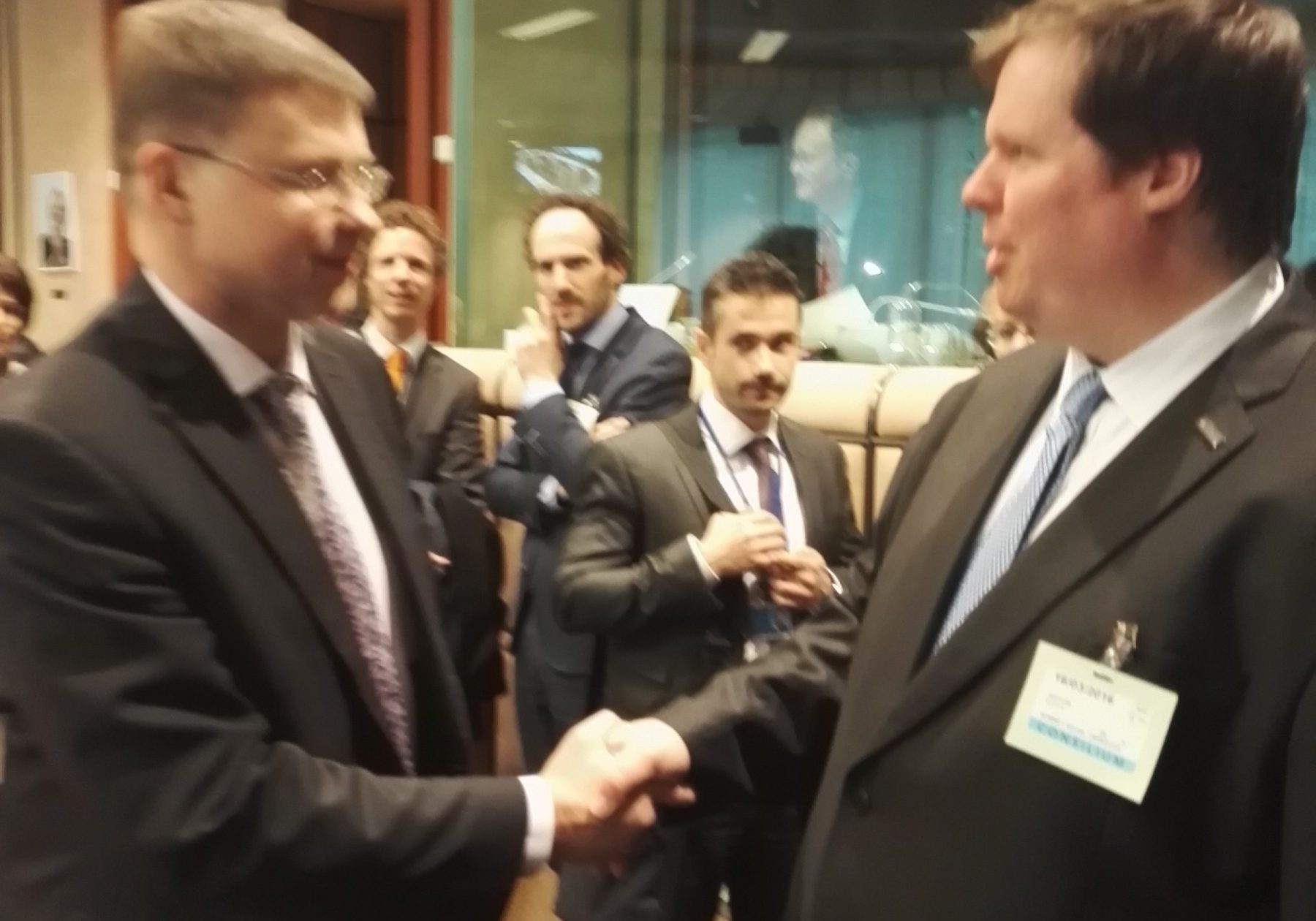
Eurocadres calls for whistleblower protection in Tripartite Social Summit
In today's Tripartite Social Summit, March 16th 2016, Eurocadres made a call for a European-wide whistleblower protection. The Trade Secrets directive is now getting close to a vote, and that text underlines the importance of a new legislation on whistleblower protection.

On whistleblower protection Martin Jefflén pointed to the activities in the European Parliament:
–We aim to continue evaluating options, in particular with regards to legal basis, together with all the current initiatives in parliament to move forward on this issue. We hope that the Commission will pick up on this work together with the Parliament.
The Tripartite Social Summit meets twice per year before the European Council and is composed by the cross-sectoral social partners – where Eurocadres is one of the three employee representing organisations, together with ETUC and CEC European Managers – the Presidents of the Commission and Council, Vice President of the Commission responsible for social dialogue and the Commissioner for employment, together with head of government and ministers of the trio of Presidency countries (Netherlands, Slovakia and Malta now).
Martin Jefflén also spoke on high-skilled workers in the skills agenda and the recently proposed social pillar.
–For Europe to be competitive we do not only need to raise the basic skills, but also the top ones. We need excellency in research, a modernised higher education of excellent quality, and innovation that can lead to prospering European companies. Because Europe needs this, as well as a strong public sector that provides quality care and education.
For Europe to be competitive we do not only need to raise the basic skills, but also the top ones.
Psychosocial health is an extremely urgent topic and Eurocadres also took the opportunity to raise this issue.
–Over half of all work days lost in EU can be attributed to work-place related stress. That accounts for enormous productivity losses, economical losses in European companies, costs for the welfare systems and last, but not least, the suffering for the individuals that experience this situation. The European Union needs to address this problem even stronger and the social partners have an important role to play here.
The discussion at the summit focused on migration and integration of refugees, digitalisation and involvement of social partners in the European semester and the implementation of the Country Specific Recommendations.
On Digitalisation Martin Jefflén underlined the right of self-employed, in particular on-line platform workers', right to organise and to collective bargaining. Trade Unions in Europe are increasingly active on organising self-employed.
–A study released this Monday at the UNI Europa Conference, a Eurocadres member organisation, included data from my own home country, Sweden. 12% of the Swedish population are already working in the gig economy. In the UK five million people are being paid through these on-line platforms, with more than three million of them regularly engaged in various forms of crowd work.
Read the full introductory speech below
Read about the study on digital economy on UNI Europas website
